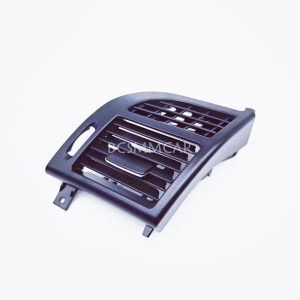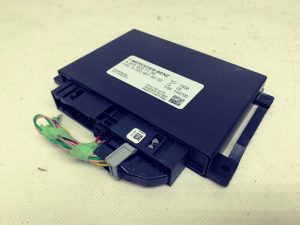
A high engine temperature in your Mercedes-Benz is an issue that requires immediate attention to prevent serious engine damage. Overheating can lead to costly repairs and reduce your car’s longevity if not properly addressed. In this blog, we’ll explore the main reasons why your Mercedes-Benz might be overheating, including how to diagnose and address each potential issue.
1. Low Coolant Level

Role of Coolant: Coolant plays a key role in maintaining the engine’s temperature by absorbing excess heat and transferring it to the radiator. If your coolant level is low, there isn’t enough fluid to keep the engine cool.
Diagnosis: Check the coolant reservoir, typically located near the radiator. Ensure the level is between the “MIN” and “MAX” markings. Also, check for any leaks around hoses, the radiator, and the reservoir itself.
Solution: If the coolant level is low, top it off with Mercedes-Benz-approved coolant. Be sure not to mix different coolant types, as this can impact cooling efficiency.
2. Faulty Thermostat

Role of Thermostat: The thermostat regulates coolant flow based on the engine’s temperature. When the engine is cold, it stays closed to let the engine warm up. When the engine reaches optimal temperature, it opens, allowing coolant to circulate through the radiator. A faulty thermostat can get stuck in the closed position, causing the engine to overheat.
Diagnosis: If your engine heats up quickly and stays hot, it could indicate a stuck thermostat. A professional diagnostic tool can confirm this.
Solution: A faulty thermostat typically needs replacement. It’s a relatively simple fix, but using a professional is recommended to ensure proper installation.
3. Malfunctioning Water Pump

Role of Water Pump: The water pump pushes coolant through the engine, allowing for even heat distribution. If the pump fails, coolant won’t circulate effectively, leading to an overheated engine.
Diagnosis: Signs of a failing water pump include coolant leaks near the front of the engine, strange noises, and frequent overheating. A diagnostic scan or visual inspection by a technician can confirm a water pump issue.
Solution: A malfunctioning water pump should be replaced promptly. This involves removing several engine components, so professional assistance is recommended.
4. Radiator Issues

Role of Radiator: The radiator dissipates heat from the coolant as it circulates, maintaining a stable engine temperature. If the radiator is clogged or damaged, it won’t be able to cool the coolant effectively, leading to overheating.
Diagnosis: Look for physical damage, leaks, or debris blocking the radiator. If the radiator fins are bent or the radiator is clogged with dirt or rust, it may not be working efficiently.
Solution: A clogged radiator may need flushing, while a damaged radiator will likely need replacement. Ensure you’re using a Mercedes-Benz-specific radiator for optimal compatibility and performance.
5. Faulty Radiator Fan

Role of Radiator Fan: The radiator fan pulls air through the radiator to cool the coolant, especially at low speeds. A faulty fan can prevent adequate cooling, causing the engine to overheat, especially in traffic.
Diagnosis: If the vehicle overheats at idle or slow speeds but not while driving, it’s a likely sign of a radiator fan issue. You can check for visible fan damage or listen for unusual noises, but a full diagnostic test may be necessary.
Solution: Depending on the issue, the fan might need cleaning, repair, or replacement. Ensure the fan motor and electrical connections are functioning as well.
6. Leaking or Damaged Hoses
Of water 
Role of Hoses: Hoses carry coolant between the engine, radiator, and other components. Cracked or leaking hoses can lead to coolant loss, causing engine overheating.
Diagnosis: Visually inspect hoses for cracks, leaks, or bulging. Run the engine and observe for any visible leaks along the hoses or connections.
Solution: Replace any damaged hoses immediately. Use high-quality Mercedes-Benz-approved hoses, as they are designed to withstand the engine’s temperature and pressure.
7. Blocked Heater Core
Role of Heater Core: The heater core helps manage the vehicle’s cabin temperature and contributes to engine cooling. A blocked heater core can disrupt coolant flow, causing the engine to overheat.
Diagnosis: A common sign of a blocked heater core is reduced or no warm air from the cabin heater, coupled with engine overheating. A professional diagnostic tool or inspection can confirm if there’s a blockage.
Solution: If the heater core is blocked, it may need flushing to remove debris. Severe blockages may require a full heater core replacement.
8. Electrical Issues Affecting Cooling System
Role of Electrical Components: Mercedes-Benz vehicles rely on various sensors, relays, and control units to manage the cooling system. A failure in the electronic controls, such as a faulty coolant temperature sensor, can cause overheating by not activating the cooling fan or failing to regulate the thermostat.
Diagnosis: A diagnostic scan tool can reveal fault codes related to cooling system electronics. Common issues include faulty coolant temperature sensors, relays, or ECU programming errors.
Solution: Depending on the exact cause, an electrical component may need replacement, recalibration, or reprogramming.
9. Clogged Coolant Passages
Role of Coolant Passages: Coolant passages in the engine allow for smooth coolant flow, promoting effective heat transfer. Over time, debris and deposits can clog these passages, hindering cooling efficiency.
Diagnosis: Persistent overheating with no obvious external leaks or faults may suggest clogged coolant passages. A qualified technician can inspect and identify blockages within the engine.
Solution: Flushing the coolant system can help remove deposits. Severe cases may require a mechanic to open up the engine for a thorough cleaning.
Preventative Maintenance Tips for Avoiding Overheating
- Regularly Check Coolant Levels: Low coolant is a leading cause of overheating, so make it a habit to inspect levels monthly.
- Replace Coolant on Schedule: Mercedes-Benz recommends specific intervals for coolant changes. Following these schedules prevents the buildup of deposits and maintains effective cooling.
- Inspect Belts and Hoses: Regularly check for signs of wear on belts and hoses to catch any potential leaks or breaks before they lead to overheating.
- Use Genuine Mercedes-Benz Parts: From thermostats to water pumps, using OEM parts ensures compatibility and reliability, reducing the risk of overheating due to part failure.
When to Seek Professional Assistance
Diagnosing and repairing overheating issues can be complex, and misdiagnosing the cause can lead to further damage. If you’re unable to pinpoint the problem, consult a Mercedes-Benz specialist for a thorough diagnosis.
As a certified Mercedes-Benz electrician technician, I specialize in diagnosing and repairing issues that may cause your engine to overheat. From checking the cooling system to ensuring electrical components function correctly, I offer a full range of services to keep your vehicle running smoothly. If your Mercedes-Benz is experiencing temperature issues, reach out today for professional assistance. I’m here to help you keep your engine cool and your driving experience stress-free 09015329867 Mercedes Benz engineer Abuja pelubenz.com


